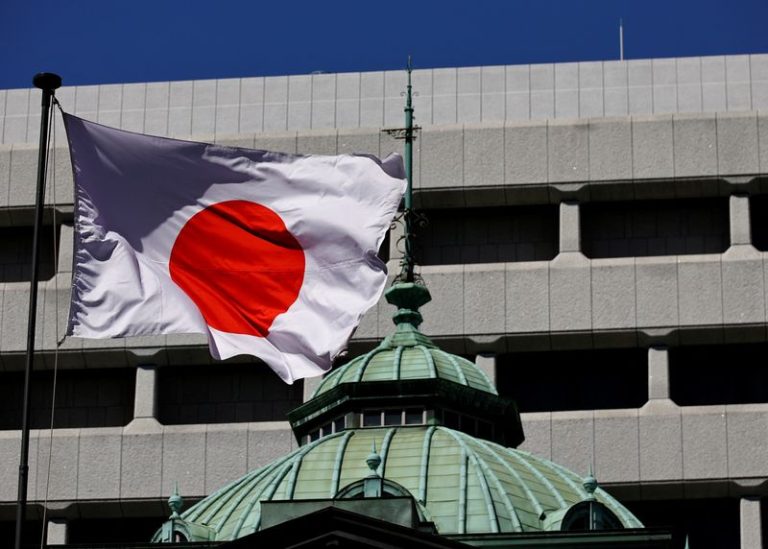By Satoshi Sugiyama
TOKYO (Reuters) – The Bank of Japan will hold interest rates at 0.25% at its December policy meeting as it assesses overseas risks and next year’s wage outlook, a majority of economists said in a Reuters poll, in a shift from a survey last month.
In the prior Reuters poll, a slim majority had expected the central bank to raise rates by the end of the year.
In the Dec. 4-11 poll released on Friday, 58% of economists, 33 of 57, said the BOJ would forgo raising borrowing costs again in December, compared with 44% in the poll last month.
The BOJ last raised rates in July, and Reuters reported on Thursday the BOJ was leaning towards holding rates on Dec. 19.
All respondents in the latest poll predicted the central bank would raise rates by at least 25 basis points to 0.50% by end-March, even though nearly all of its global peers are tilting toward further rate reductions.
Analysts said the BOJ is waiting to see the trend of next year’s spring pay negotiations and seeking to communicate better about policy changes with market participants through speeches and a branch manager meeting scheduled before its January policy-setting meeting.
While inflation and wages data show the Japanese economy is developing as the BOJ had projected, the central bank is mindful of risks abroad, said Mari Iwashita, chief market economist at Daiwa Securities.
“If the BOJ is to ‘carefully examine the future economic developments and policy management’ of the U.S., it would be better to wait until the January meeting next year to confirm the economic situation as well as the policy management of the incoming Trump administration,” said Iwashita, a veteran BOJ watcher.
The yen’s depreciation, one of the main factors identified to justify a December rate hike in last month’s poll, has cooled, said an analyst at Mizuho (NYSE:MFG) Research & Technologies.
Among a smaller sample of 19 economists who provided monthly forecasts and anticipated either a rate hike next year or no further increase at all, all but one chose January.
Economists’ predictions on the timing of the next rate hike have been fluctuating between December and January, with analysts torn over whether the Japanese economy can absorb repercussions from raising borrowing costs because the economy has yet to show signs of a sure-footed recovery.
While regular wages have been rising at an annual pace of around 2.5% to 3% and inflation has remained above the central bank’s 2% target for well over two years, household spending fell in October for the third straight month and factory output has been seesawing.
Revised third-quarter gross domestic product data released on Monday showed Japan’s economy expanded at a faster pace than initially reported, but private consumption was revised down in a sign of the economic recovery’s fragile nature.
The BOJ ended negative interest rates in March and raised its short-term policy target to 0.25% in July. It has signalled readiness to hike again if wages and prices move as projected and heighten its conviction Japan will durably hit 2% inflation.
The median of 31 economists who offered their view on the rate of pay increase at next fiscal year’s spring labour-management negotiations was 4.7%, down from this year’s 5.1% but still higher than last year’s 3.58%.
Additionally, about 94% of economists, 30 of 32, said in this month’s poll that U.S. President-elect Donald Trump’s proposed tariff policies would either negatively or somewhat negatively affect Japan’s economy.
“The increase in tariffs will be a headwind for global trade,” said Takumi Tsunoda, senior economist at Shinkin Central Bank Research Institute.
However, Tsunoda said the feasibility of the tariff policy was not necessarily high, adding even if it was implemented, it would not have an impact on the real economy until the second half of 2025 at the earliest.
(Other stories from the Reuters global economic poll)

